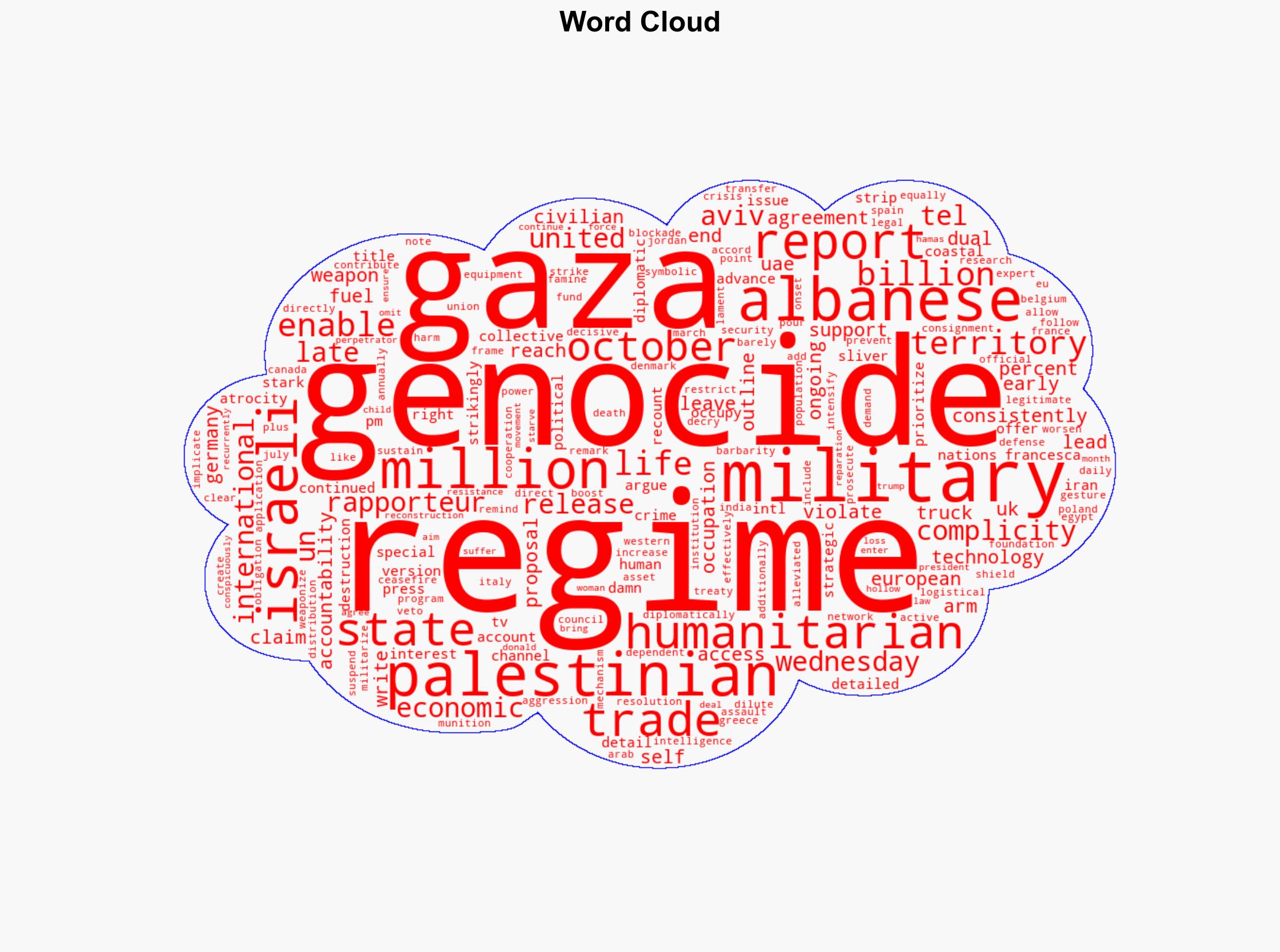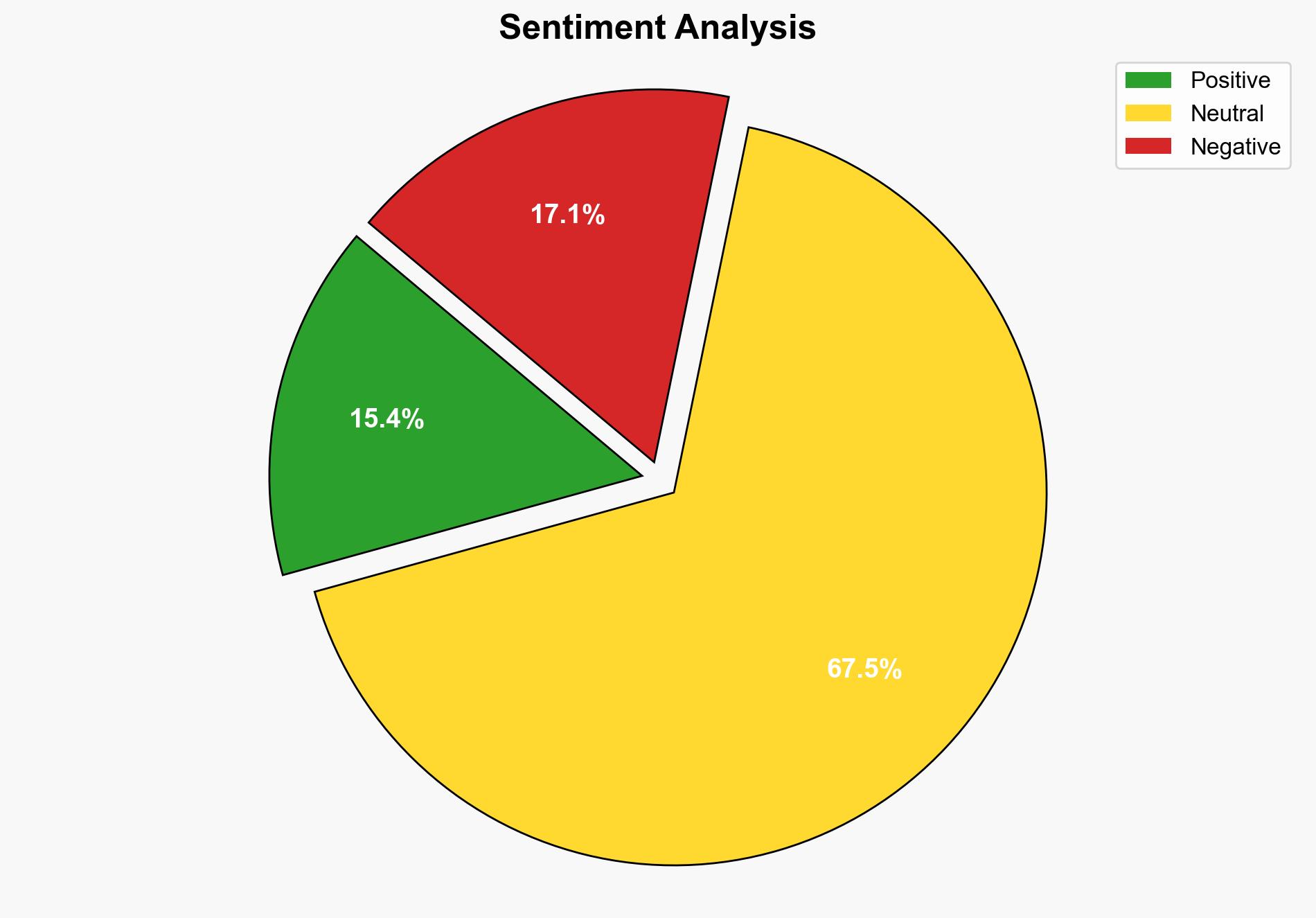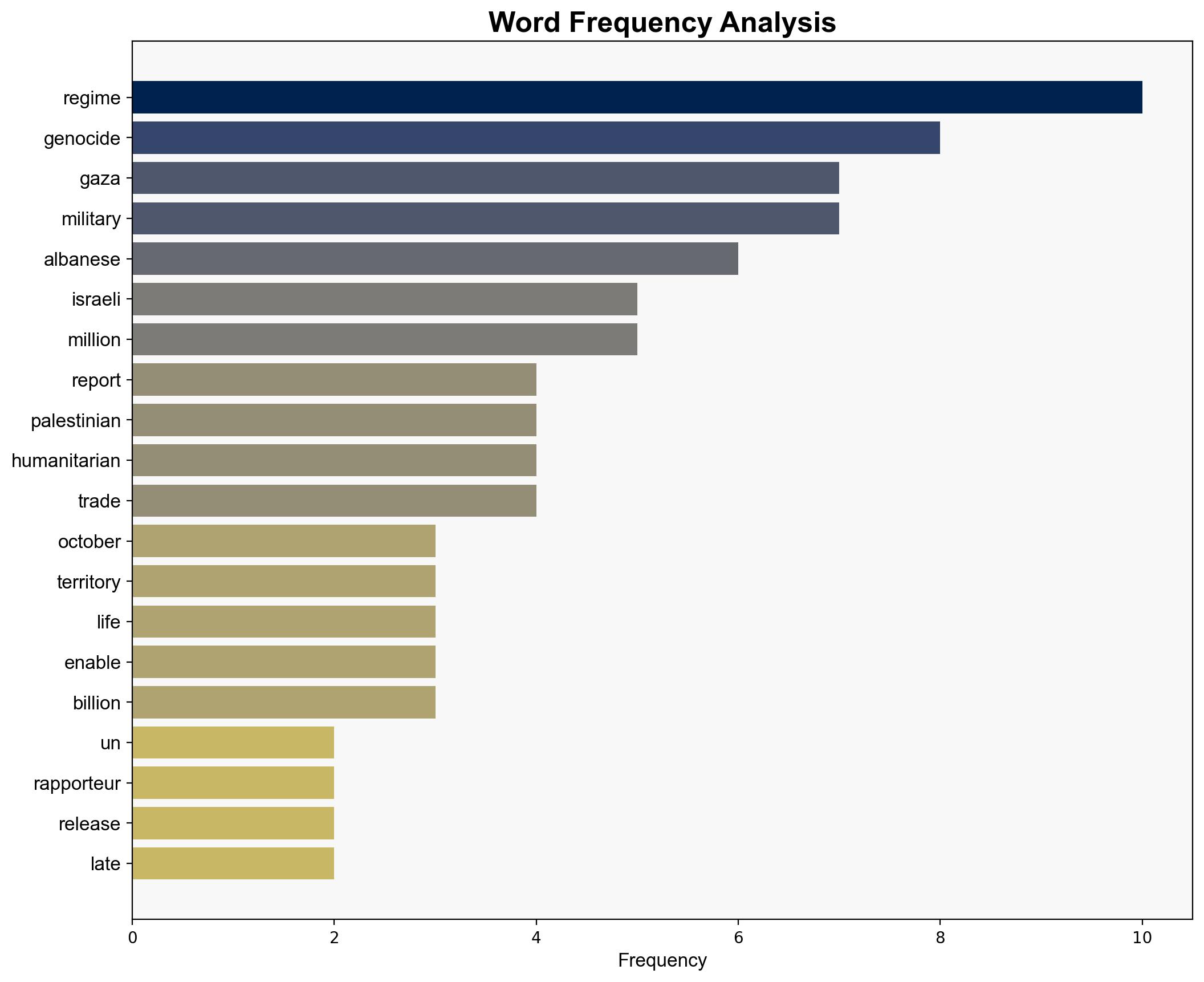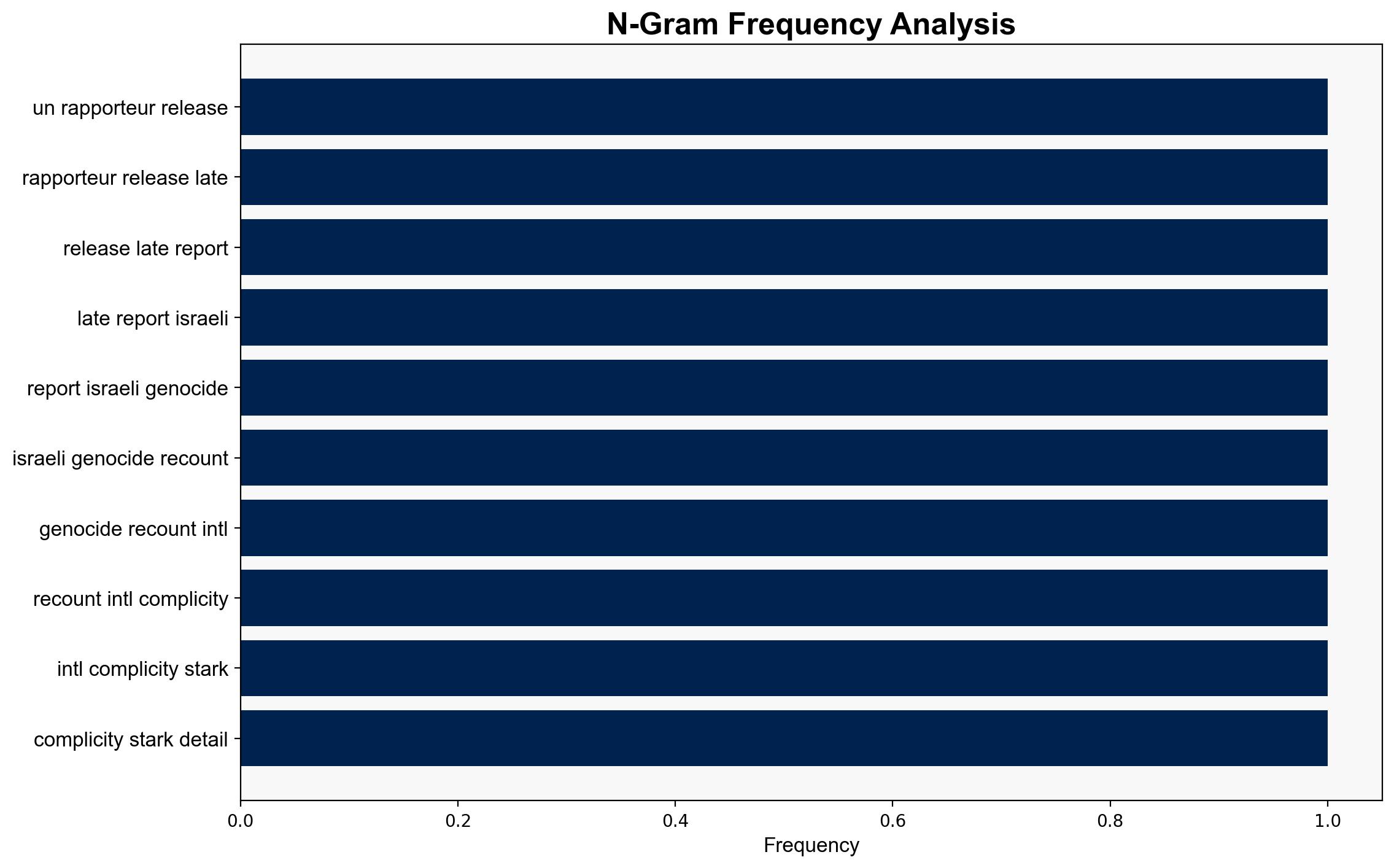UN rapporteur releases latest report on Israeli genocide recounting intl complicity in stark detail – Globalsecurity.org
Published on: 2025-10-23
Intelligence Report: UN rapporteur releases latest report on Israeli genocide recounting intl complicity in stark detail – Globalsecurity.org
1. BLUF (Bottom Line Up Front)
The report by the UN Special Rapporteur Francesca Albanese presents a detailed account of alleged genocide by Israel in Gaza, emphasizing international complicity. The most supported hypothesis is that the report aims to pressure international actors to reassess their support for Israel and address humanitarian concerns in Gaza. Confidence in this hypothesis is moderate due to the politically charged nature of the issue. Recommended action includes diplomatic engagement to address humanitarian needs and reassess arms trade agreements.
2. Competing Hypotheses
1. **Hypothesis A**: The report is an accurate reflection of ongoing genocide and international complicity, aiming to catalyze global intervention and policy change.
2. **Hypothesis B**: The report is politically motivated, exaggerating claims to influence international opinion and pressure Israel and its allies diplomatically.
Using the Analysis of Competing Hypotheses (ACH) 2.0, Hypothesis A is more supported due to the detailed documentation and specific allegations, though Hypothesis B cannot be dismissed given the contentious nature of the Israeli-Palestinian conflict.
3. Key Assumptions and Red Flags
– **Assumptions**: The report assumes the accuracy of the data regarding arms transfers and economic support. It presumes international complicity based on these transactions.
– **Red Flags**: Potential bias in the report due to the rapporteur’s stance and the political context. The lack of counter-narratives or Israeli perspectives in the report.
– **Blind Spots**: The report does not address the complexity of the conflict, including actions by Palestinian groups.
4. Implications and Strategic Risks
– **Geopolitical Risks**: Increased tensions between Israel and its international allies, potential for diplomatic fallout.
– **Economic Risks**: Potential impacts on arms trade and economic agreements with Israel.
– **Humanitarian Risks**: Continued deterioration of conditions in Gaza, risking further civilian casualties and regional instability.
– **Psychological Risks**: Heightened tensions and radicalization on both sides of the conflict.
5. Recommendations and Outlook
- Engage in diplomatic dialogue with key international actors to address humanitarian concerns in Gaza.
- Reassess arms trade agreements to ensure compliance with international law.
- Scenario Projections:
- Best Case: Diplomatic efforts lead to a ceasefire and improved humanitarian conditions.
- Worst Case: Escalation of conflict and further international division.
- Most Likely: Continued diplomatic tension with incremental humanitarian aid improvements.
6. Key Individuals and Entities
– Francesca Albanese (UN Special Rapporteur)
– Countries mentioned: United States, European Union, Germany, UK, India, Italy, France, Spain, UAE, Egypt
7. Thematic Tags
national security threats, humanitarian crisis, arms trade, geopolitical tension




